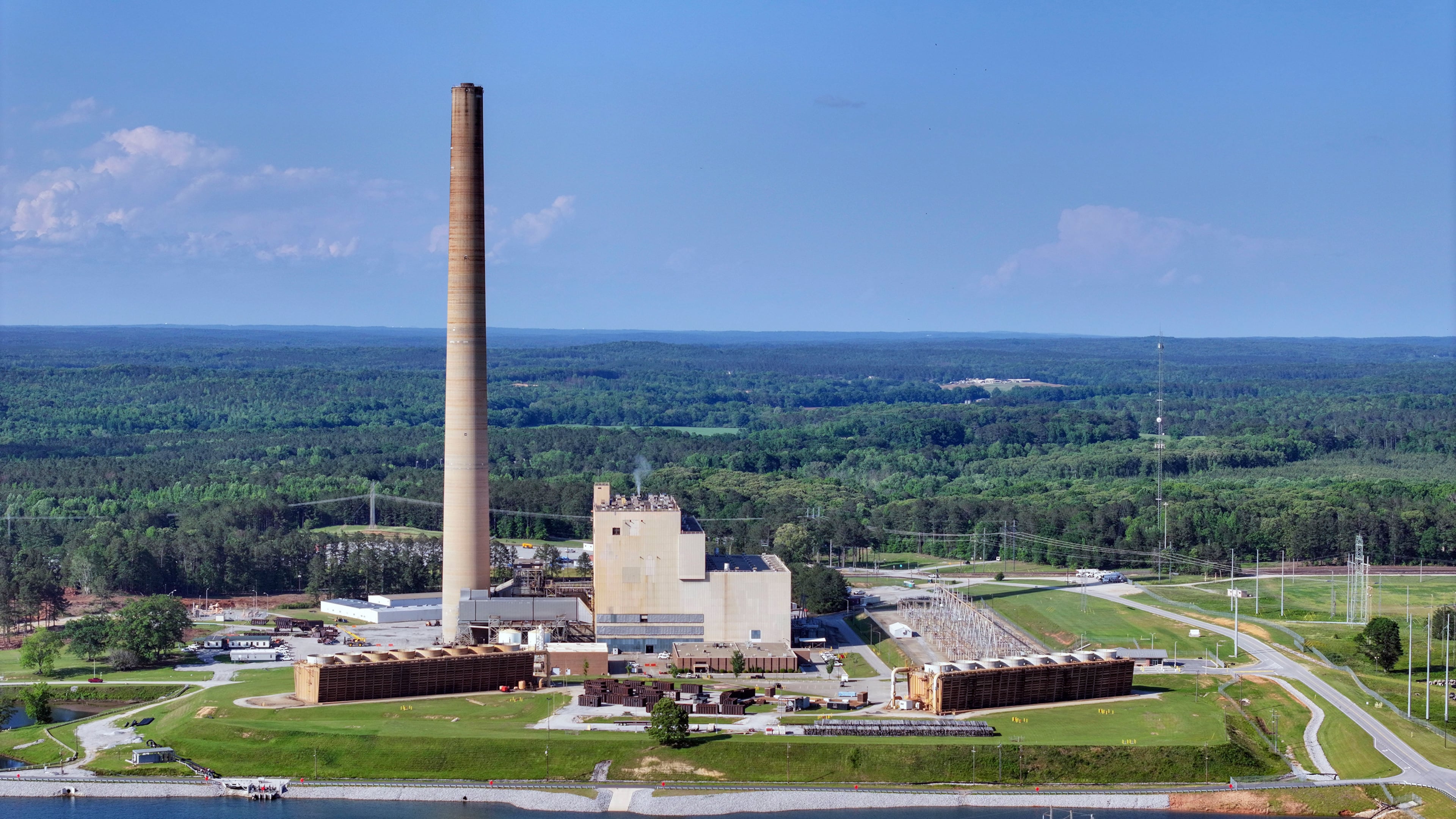Georgia Power says answer to state’s data center surge is more natural gas

Georgia Power officials will make their case to state regulators beginning Tuesday to build gas-fired power plants and add solar and battery storage to the power grid over the next five years to support an unprecedented amount of electricity demand driven by data centers.
The state’s largest electric company wants to add to its fleet 10,000 megawatts — roughly the capacity of 10 nuclear reactors at its Plant Vogtle power station near Augusta. This amount will boost the utility’s power generation fleet by a historic 42%.
“It’s just a staggering amount of new capacity resources,” said Bob Sherrier, staff attorney with the Southern Environmental Law Center.
Georgia is the fastest growing market in the nation for new data centers, warehouses packed with servers that power artificial intelligence and our digital lives. Georgia Power and the data center industry say they need more power — comparable to the needs of many large cities — to serve them.
None of this new proposed electricity will come from nuclear power, however, and less than half will come from other carbon-free sources of electricity. Rather, Georgia Power wants nearly 60% of it to come from new or existing natural gas plants, which produce a potent greenhouse gas called methane.
The utility, as well as much of the power sector, argues that natural gas power plants are the best choice because they can be built faster than nuclear, are cleaner than coal and run 24/7, unlike certain renewable sources such as solar. But natural gas is a volatile fuel that is subject to wide price swings. It also contributes to climate change.

Georgia Power’s request at Public Service Commission hearings starting Tuesday will take place amid growing scrutiny nationwide over whether data centers are increasing other customers’ electric bills despite stated protections from utilities, including Georgia Power.
Electricity demand nationwide has been steadily climbing after roughly a decade of stagnant growth. But Georgia Power is among major electric companies across the Southeast that has repeatedly returned to its state regulators asking to build more and more power plants as the number of energy-sucking data centers continue to grow.
To be sure, the electric company in 2022 said it would need to add about 400MW of generation — roughly the size of a small power plant — by 2031. Less than two years later, the utility boosted that amount of a whopping 6,600MW.

This is on top of the company finishing two, 1,100MW nuclear reactors at Plant Vogtle.
“We don’t expect this load to disappear,” said Jeremiah Haswell, Georgia Power’s regulatory affairs director. He said the utility has commitments from customers that total 10,400MW already.
“The commitments we have outpace our load forecasts,” he said.
While 10,000MW is a staggering amount, the pipeline of potential projects eyeing Georgia and elsewhere stands at 50,000MW, Haswell said. The company developed its own projections based upon whether developers selected Georgia and Georgia Power and then signed a contract with the utility for electricity.
Haswell said the data center operators are paying for their electricity needs, for the transmission to get it there, and they must pay upfront for the substations that connect to the transmission lines.
“Customers are protected,” Haswell said.
The outcome of this request won’t be known until December, when the Public Service Commission takes a vote. Meanwhile, the discussion alone could have significant political and economic consequences for the state.
Two of the utility regulators on the commission are up for reelection on Nov. 4. The question of the PSC’s role in the state’s data center boom has been a key issue because the commission can decide what type of electricity Georgia Power puts on the power grid and who pays for it.
Said a different way, the PSC can vote up or down on the company’s request to add more natural gas, solar and battery storage. It also has the power to decide whether data center operators or all customers pay downstream electricity costs such as higher fuel prices.
The commissioners who are up for election will still vote on this issue regardless of the outcome at the ballot box. Their current terms will not end until early next year.
An agreeable vote sends a signal to Wall Street and outside developers that Georgia continues to be open for business for data centers, industry experts say.
“That’s the tension that’s definitely facing commissioners. On the one hand, there’s guaranteeing protection for your existing customers,” Sherrier said. “The other is: do we build to recruit more economic development.”
SELC is representing Georgia Interfaith Power & Light and Southface Energy Institute in this week’s hearings.
The other groups participating in the hearing process have a wide range of concerns, most of which focus on the large amount of natural gas that Georgia Power wants to build. While Haswell said Georgia Power has secured gas turbines for construction, it has been widely reported that there is a five-to-seven-year backlog for those who already don’t have them under contract.
“We’re starting to put more pressure on the gas system, and it’s not clear that the cumulative demand for gas is going to be sustainable or met in the next five years,” said Simon Mahan, executive director of the Southern Renewable Energy Association.
What’s more, these projects require additional underground pipelines to get the natural gas to the power plants followed by more transmission lines overhead to deliver the electricity to the data centers and other parts of the grid.
“If the transmission can’t keep up, the economic engine in these states will stop,” Mahan said.
A NOTE OF DISCLOSURE
This coverage is supported by a partnership with Green South Foundation and Journalism Funding Partners. You can learn more and support our climate reporting by donating at AJC.com/donate/climate.



